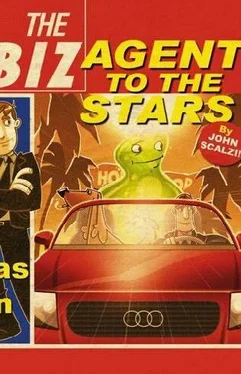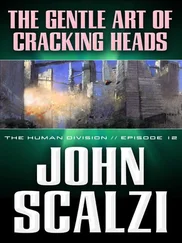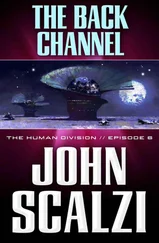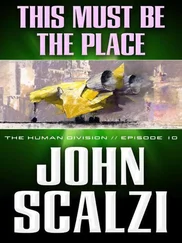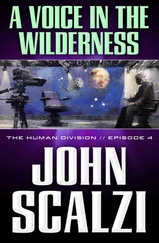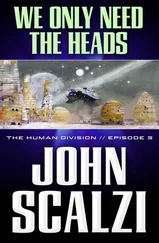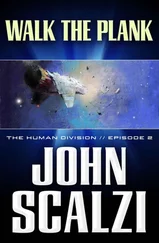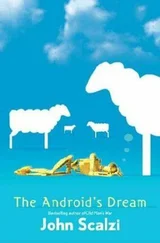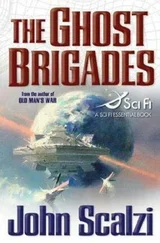In April of 1997, I started work on my first novel, a science fiction story called Agent to the Stars, about (naturally enough) a Hollywood agent who finds himself representing the first alien race to contact humanity. I picked the subject because I found it amusing, and it was something I had some experience with — the movie part at least: I had been a movie critic for five years before starting the novel. I picked that time to start work in part because my 10th year high school reunion was coming up that October, and I wanted to be able to say that, yes, I had written my first novel, thank you very much (ego is such a compelling motivator). I worked on the novel mostly on weekends, and in July 1997, I had 96,000 words strung together in such a way that they told a story — a pretty decent story, if you ask me. I had managed to write my first novel. I was as proud as any poppa could be.
Needless to say, that was the easy part.
If writing a science fiction novel is like giving birth to a child, getting the thing published is like trying to get the child into college. First, you dream of the Ivy Leagues (or Del Rey or Bantam Spectra), then you notch down to the good-but-not great schools (your Tors and DAWs), and then you finally start grazing through the community colleges — small presses and such. Eventually you acclimate yourself to the fact that your child cannot get in anywhere, and will in fact be hanging around the house, staring sullenly at you from the corner, for the rest of your life. Depressing.
But does your "child" need to go to "college"? Perhaps technology can make an end run around predestined failure. I know at least a couple of folks who have played with computers instead of going to college, and are now being rewarded with millions in stock options. Can the metaphor be extended? Can my novel, which did not get accepted by the publishing houses I sent it to, make it to popularity and success through the magic of the World Wide Web?
Probably not. But I'm going to give you some reasons why I think it is worth the try.
* * *
For what it's worth, I'll flash my credentials here, so I won't come off entirely as a disgruntled and embittered writer (merely mostly embittered). I'm actually a pretty happy writer. It's what I've been all my professional life; I've never had to do anything else. I primarily write criticism and humor columns, with reasonable success in both fields; currently I'm a critic and columnist for MediaOne Express, an online publication, and I occasionally will place a piece with the Washington Post , my hometown paper. I've been an editor as well, most notably for a humor area on America Online. I even have an agent — for non-fiction.
And here's the final nail in my coffin: My writing has landed me on Oprah . Stand back, y'all.
* * *
What I haven't had as a writer is to have a novel published. Since I've only written one at this point, that would specifically mean I have not had a science fiction novel published. There are reasons for this. Full and complete honesty requires me to admit that one of these reasons may simply be that the novel I've written isn't much good. It kills me to say it, of course. But there it is.
Having now admitted it to be a possibility, however, I feel comfortable in dismissing it. Two reasons for this. The first is that the novel passes my own Crap Detector; having been a editor as well as a writer, I have a pretty good feel for when I'm writing well, and when I'm just spouting off. Agent to the Stars , in terms of pure writing, gets a "B" grade from me; there are ups, there are downs, but it's mostly consistent. It's not the best thing I've ever written, but for a first shot at the novel form, I'm pretty pleased.
Second, it passed muster with a phalanx of friends whose motto may well be "If you can't criticize your friends, you can you criticize?" None of them has ever been shy about criticizing anything I've ever done before; this is not where they were going to start. Whatever flaws Agent has a piece of salable work, being flat-out God-Awful writing isn't one of them.
It's primary flaw, as far as I can tell, lies in the fact that a) it's humorous, b) it takes place in contemporary time, c) whole stretches of it concern Hollywood and not aliens, and d) no one's ever heard of me before. Any one of these might be able to be gotten away with, but the whole package presents a pretty problem for publishers.
* * *
Why? Well, I've just come back from the bookstore (to buy the new Anne Rice for my wife — she's popping them out once every three months these days), and while I was there, I eyeballed the science fiction shelves. Based on my observations, here's what you need to be published in science fiction these days.
1. To have been published before.
2. To write military science fiction.
If you haven't been the first, and haven't written the second, you're pretty well screwed. For verification of this, go to your own local bookstore (which, at this late date, is almost certainly not "local," but is part of a massive national chain) and check out the shelves devoted to science fiction. By my eyeball estimate, eight out of the ten books you'll see are from veterans, many of them dead: Asimov, Clarke, Heinlein, Niven; a step down in quality but not quantity you'll find the likes of Alan Dean Foster and Piers Anthony (though the latter is primarily fantasy; for the purposes of this discussion, I'll be parting out fantasy entirely and largely ignoring it). These folks have been at it (to put it delicately) for a while.
The two books remaining from the ten are from "new" authors, meaning authors published in the last decade or so; of these, eight out of ten have "hard SF"markings, meaning more often than not that they deal with military futures: David Feintuch is a fine example of an author of these sorts of books. This leaves four science fiction books out of a hundred that feature new authors not writing about space navies and powered war suits. Not a lot. There's nothing inherently wrong with space navies, of course (nor are the people who write them bad writers). But is that all we get?
This is, of course, is not even mentioning the ever-increasing space on the science fiction shelves taken up by media tie-ins, everything from the venerable Star Wars and Star Trek tomes to books based on videogames, nearly all of them, natch, military in nature: Descent , Wing Commander and Unreal are the ones I recall seeing. And then there's the half of the science fiction racks that are actually stocked with fantasy instead of science fiction.
Basically, if you're a fan of new SF not involving tie-ins or raging space battles, you're just plain out of luck. You're not going to find much to buy. And you're not finding much to buy, that means that those of us who are trying to sell are having that much harder a time of it.
* * *
Understand this is not entirely sour grapes. Here's a headline that should chill the heart of every science fiction reader, from the March 15, 1999 edition of the New York Times :
"Publishers of Paperbacks Are Facing Sliding Sales"
Guess what: The science fiction genre was built on paperback novels. And science fiction is getting especially squeezed — science fiction sections in bookstores are shrinking (or have been near me — since it's all national chains where I live, I'm assuming this trend is not isolated), and it's become substantially harder for non "name-brand" authors of all stripes to get their works in non-bookstore settings: Supermarkets, pharmacies, Wal-Marts and Targets. Even when the books make it into the stores, it's do or die: Any title that doesn't fly off the shelf gets sent back to the publisher to make room for newer, fresher product.
Читать дальше
